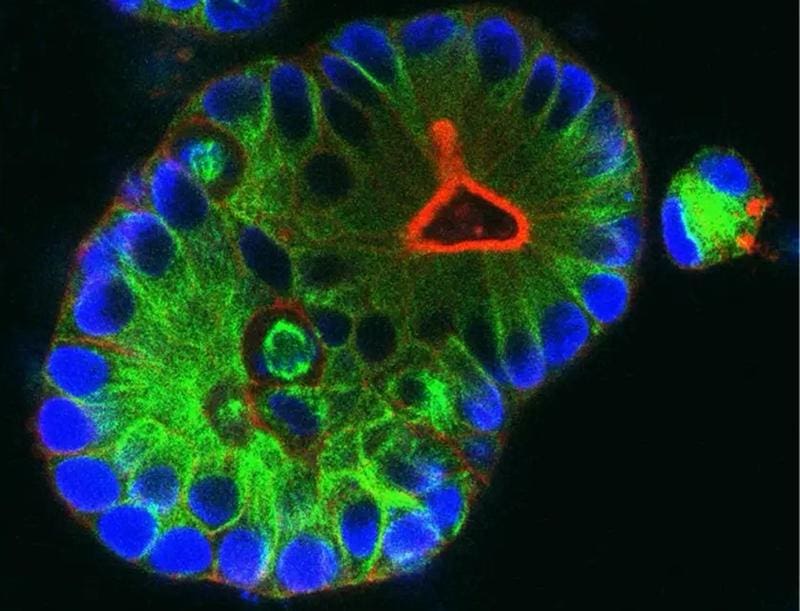New hope for people with rectal cancer
A research team from Mannheim and Heidelberg has developed a promising approach to improve the treatment of rectal cancer. Under the direction of Professor Dr. Johannes Betge from the German Cancer Research Center (DKFZ) and Professor Dr. Tianzuo Zhan from the University Medical Center Mannheim, a drug combination therapy was researched that could significantly increase the effect of radiation therapy in locally advanced rectal cancer.
Colorectal cancer is one of the most common causes of cancer-related death, with more than a third of cases originating in the rectum. Rectal carcinomas are often diagnosed at an advanced stage, when the tumor has already reached a significant size. Standard treatment includes neoadjuvant chemoradiotherapy, which is designed to shrink the tumor before surgery to facilitate surgical removal. Although intensified chemotherapies often improve treatment outcomes, they are often accompanied by severe side effects. Targeted drug approaches that exploit the molecular weaknesses of the tumors have so far been largely lacking.
The research team is pursuing an alternative approach: a combination drug therapy is intended to increase the sensitivity of the tumor to radiation therapy. The investigations were carried out on so-called organoids, three-dimensional mini-tumors that were grown from patient cells. These tissue cultures replicate the response of tumor tissue to drugs and radiation more realistically than conventional cell cultures, making them ideal for such tests.

By examining around 1600 drug combinations in combination with radiation therapy, the scientists identified new drug combinations that significantly improve the radiation effect and are well tolerated at the same time. Inhibitors of the RAS-MAPK signaling pathway, especially MEK inhibitors, were particularly effective. This signaling pathway plays a central role in cell proliferation. MEK inhibitors suppress radiation-activated signaling while inhibiting important DNA repair mechanisms in tumor cells, making them more sensitive to radiation.
The combination with a PARP inhibitor, which also blocks DNA repair in cancer cells, showed a particularly effective effect. In mouse models, the triple combination of radiotherapy, MEK and PARP inhibitors led to significantly better control of tumor growth with good tolerability.
The results provide a solid basis for future clinical trials to test the combination therapy in patients with locally advanced rectal cancer. The project was funded by the Hector Foundation, among others. The scientists are optimistic that this approach could improve treatment outcomes and improve the quality of life of those affected.
Editor: X-Press Journalistenbû¥ro GbR
Gender Notice. The personal designations used in this text always refer equally to female, male and diverse persons. Double/triple naming and gendered designations are used for better readability. ected.




